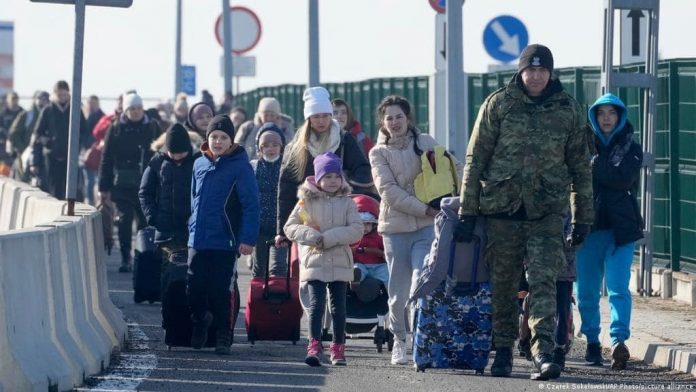Budget MEPs have visited the EU’s Emergency Response Centre ahead of negotiations on the EU budget 2023, to check how EU funds are spent on tackling disasters in the EU and globally.
On Tuesday, a delegation of the Committee on Budgets visited the EU’s Emergency Response Coordination Centre (part of the EU Civil Protection Mechanism), on invitation of Commissioner Janez Lenarčič. The centre coordinates the delivery of assistance to disaster-stricken countries inside or outside of the EU, such as relief items, expertise, civil protection teams and specialised equipment.
“We have visited the Emergency Response Coordination Centre of the EU at the Commission’s DG ECHO. It is here that the calls for help are coming in. From Ukraine to Pakistan, but also from the Member States. Even the best prepared and equipped Members States still ask for assistance from the EU. What is our problem? The EU Civil Protection Mechanism and humanitarian aid need more support. We will try to increase the corresponding budget lines in 2023 but we need an urgent revision of the EU’s long-term budget, the MFF, to really make the EU budget fit for its purpose: to be better prepared for crisis management, wildfires and other natural disasters. Action is less expensive than inaction,” said Nicolae Ştefănuță (RENEW, RO), general rapporteur for the EU budget 2023 (for section III – Commission).
Niclas Herbst (EPP, DE), rapporteur for the other sections, added: “The EU 2023 budget should be prudent and focus on the most important needs of the citizens. The numerous forest fires this summer have mercilessly exposed the deficits of the joint EU crisis defence. The European budget must provide common resources such as airplanes and helicopters. This will bring added value and mutual benefit for the Member states.”
Insufficient resources for humanitarian aid
Recently noting that the consequences of the Russian aggression against Ukraine have “dramatically increased” humanitarian assistance needs, already “under pressure because of funding gaps and the multiplication of crises and conflicts in the world”, MEPs, ahead of negotiations with member states on next year’s EU budget, have requested an increase of funds for humanitarian aid by €250 million, and for the “NDICI – Global Europe” instrument for EU cooperation with third countries, by €162 million. They are “deeply concerned that, even with the increases proposed by Parliament, there would be insufficient resources to address the humanitarian aid needs in 2023”.
Natural disasters on the rise due to climate change
MEPs have also highlighted the increasingly numerous and severe natural disasters in Europe, as evidenced most recently by the record wild fires in the summer of 2022, underlining that due to climate change, “such extreme weather events are going to intensify and multiply”. They have therefore decided to reinforce the Union Civil Protection Mechanism by €20 million. The Commission had recently announced that it will purchase ten more light amphibious aircraft and three more helicopters to fight fires.
MEPs will defend their position in negotiations with member states on the EU budget 2023 which continue during the next weeks.

